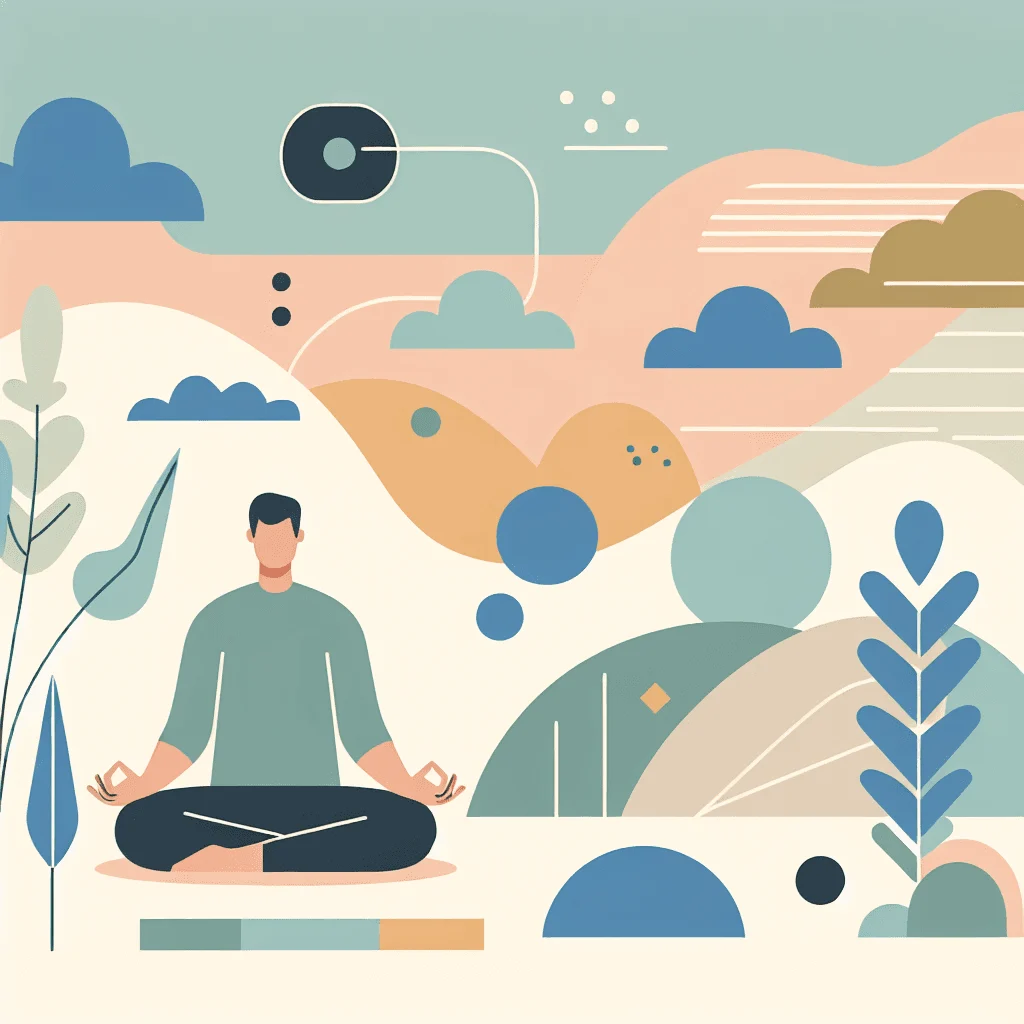How to Know if Meditation Is Working: Clear Signs You’re Making Progress
Many people turn to meditation searching for peace, clarity, or emotional balance. But how do you know if it’s actually working? It’s not always about achieving immediate stillness or “emptying the mind.” As with many inner-growth practices, the progress is often subtle. In this article, we’ll explore the telltale signs that meditation is benefiting you and how to recognize them in your daily life.
If you’re new to meditation and want to build a foundation for a sustainable routine, check out our guide: Everyday Calm: A Beginner’s Guide to Daily Meditation.

1. You’re More Aware of Your Thoughts
One of the first signs that meditation is working is heightened self-awareness. You begin to notice the stream of thoughts and internal chatter more clearly. While it might seem like your mind has become busier, it’s actually just your awareness increasing. Over time, you’ll find it easier to observe your thoughts without getting swept up in them.
This growing mindfulness off the cushion is a strong indicator that your meditation practice is making an impact.
2. Emotional Reactivity Decreases
We all encounter situations that can trigger stress or irritation. However, after meditating regularly, you may notice you’re less reactive overall. For example, the same situation that once caused frustration might now only elicit mild annoyance—or no reaction at all.
This subtle shift is often one of the most profound benefits of meditation. It means you’re building emotional resilience and cultivating a greater pause between stimulus and response.
3. Improved Focus and Patience
Although meditation is often seen as a tool for relaxation, it’s also a workout for your attention span. Just as lifting weights builds muscle, returning your focus to the breath or mantra builds mental discipline. As a result, you might find that you can concentrate longer at work, listen more attentively in conversations, and stay present during daily activities.
For more on cultivating patience through daily practice, explore our resources on Personal Growth.
4. Better Sleep Quality
If you’re wondering how to know if meditation is working, pay attention to your sleep. Greater mind-body relaxation from consistent meditation often translates into falling asleep faster and experiencing deeper rest. You may also wake up less frequently during the night or feel more refreshed in the morning.
Sleep improvements are often one of the first noticeable benefits, especially with evening meditation. For more guidance on timing your practice, read: Is It Better to Meditate in the Morning or Night?.
5. You Feel More Grounded and Calm
Many meditators report an enhanced sense of groundedness, inner calm, or emotional stability. Even on hectic days, there’s a steady presence that helps you navigate stress with more ease. That doesn’t mean your life becomes stress-free—but your relationship to stress shifts significantly.
This inner calm is a key sign that your meditation is integrating into your nervous system and emotional landscape.
6. You Experience Moments of Silence or Clarity
Meditation progress isn’t always loud or celebratory. Sometimes, it arrives in a moment of stillness—when your mind briefly quiets and your body feels fully at ease. These pockets of peace may be fleeting at first, but they begin to appear more often with practice.
Moments of mental clarity or insight during meditation can also indicate deeper connection to your inner self and values. These experiences can help you course-correct in life without needing external validation.
7. You Crave the Practice (Rather Than Force It)
When meditation starts feeling like a supportive habit—not just another checkbox on your to-do list—that’s a great sign. Over time, your body and mind begin to welcome the daily pause rather than resist it.
You may also find yourself turning to meditation naturally during difficult times, which speaks to your growing mindfulness toolkit.
8. You Observe a Shift in Perspective
Regular meditation often goes hand-in-hand with broader shifts in how you view life. This may include:
- Feeling more connected to others
- Letting go of judgment more easily
- Living with intention rather than autopilot
These aren’t always immediate results, but over weeks and months, your sense of identity, purpose, and relationships may evolve. You might also experience greater synchronicities or feel drawn to personal development resources like Manifest Your Dreams: A Practical Guide to the Law of Attraction.
9. Tracking Progress Without Becoming Obsessive
If you’re not sure how to measure success with meditation, know this: you don’t have to feel “perfectly peaceful” every time. In fact, struggling with distraction or restlessness is normal. Progress is about continuing the practice despite the fluctuations.
Journaling your sessions, noting emotional changes over time, or simply reflecting monthly can help you track changes without becoming fixation-driven. You can also revisit resources like Meditation Books for Beginners to refine your approach as you evolve.
10. You Start Applying Mindfulness in Real Life
Perhaps the most meaningful sign of all: you begin to embody mindfulness outside of your meditation sessions. Whether it’s pausing before reacting in a heated conversation or slowing down to appreciate a moment with your loved ones, these are the real-world outcomes that show your practice is working.


Final Thoughts
Knowing whether meditation is working often comes down to subtle, lived experiences. Progress shows up not just on the cushion but in your thoughts, behaviors, and relationships. It’s OK if your journey isn’t linear—growth usually isn’t.
If you’re feeling unsure or want some structured help, revisit basic techniques with our guide: Everyday Calm: A Beginner’s Guide to Daily Meditation. And for more tools and inspiration, don’t miss these related reads:
For continued support, browse our full archive under Mindfulness & Meditation or Mental Health & Wellbeing. Remember—meditation isn’t about perfection. It’s about presence.

